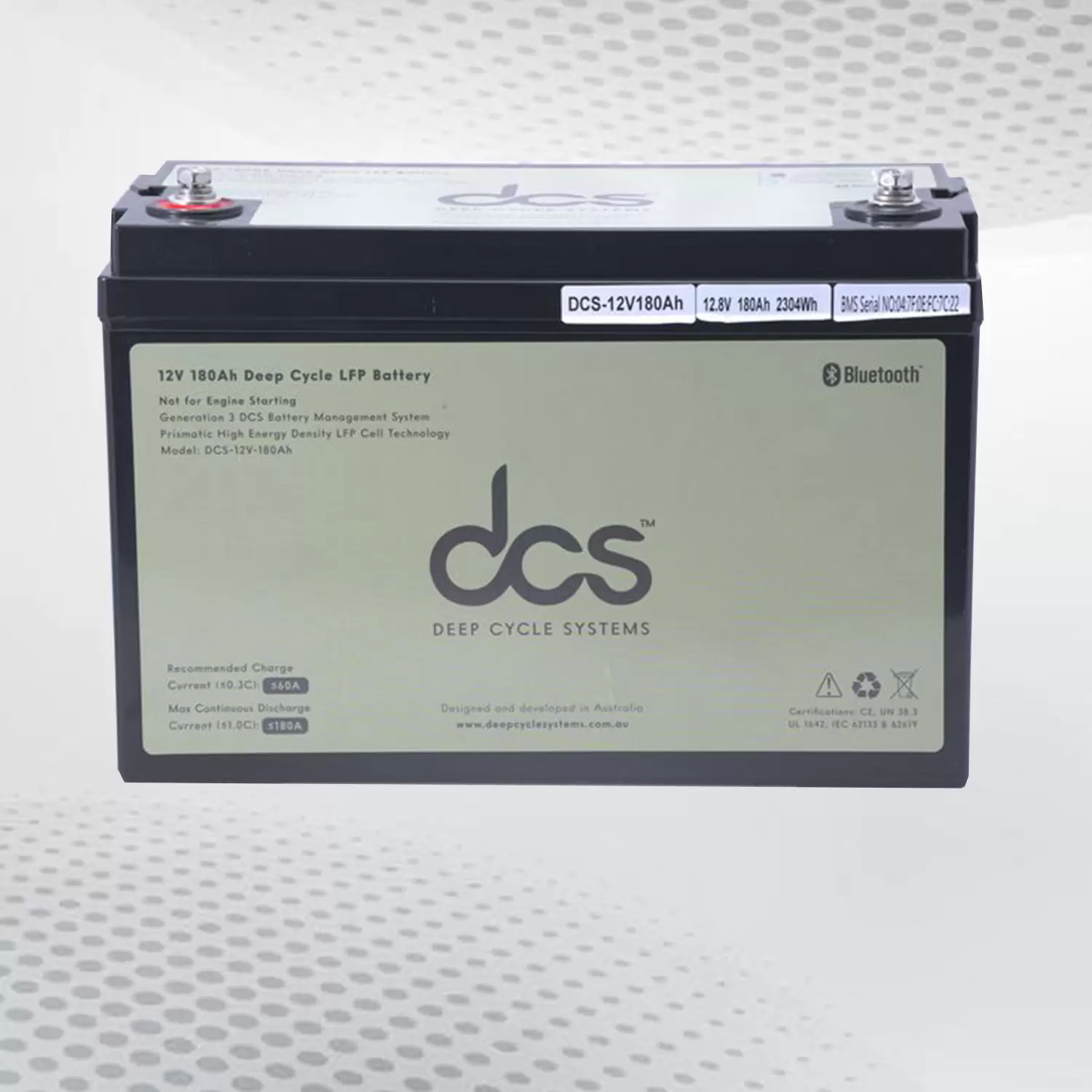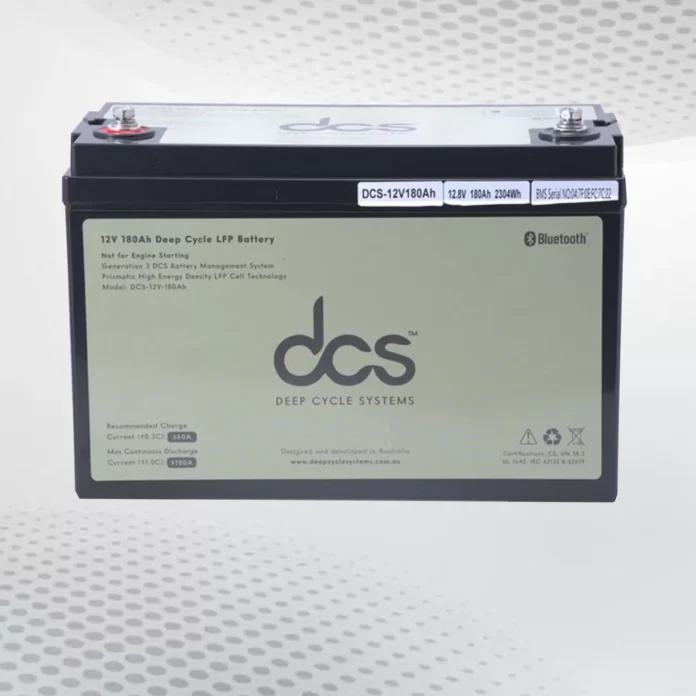The Lithium Deep Cycle Battery stands out as a top contender when choosing the right battery for your energy needs. With its superior performance, efficiency, longevity, and environmental impact, it’s no wonder why more and more people are switching to this advanced technology. Notably, Lithium Deep-Cycle Batteries also require less maintenance than traditional battery options, offering an unrivalled convenience for users. Perfect for high-drain applications, these batteries can hold their charge for long periods, reducing the worry of constant charging.
The Power of 12v Lithium Ion Batteries
Its remarkable power output is a cornerstone of the 12v Lithium Ion Batteries appeal, particularly evident in the 12v Lithium Ion models. These batteries are engineered to provide a steady and robust power supply, essential for various demanding applications. Users of marine equipment, recreational vehicles, and solar energy systems, as well as those relying on other off-grid setups, will find the 12v Lithium Ion Battery to be a game-changer regarding reliability and performance.
The consistent power delivery of these batteries supports a wide range of electronic devices and machinery, ensuring that they operate at their peak without the risk of power dips or interruptions. It is particularly important in scenarios where a stable energy source is critical, such as boat navigational equipment or safety systems in RVs. The 12v Lithium Ion Battery is a testament to the advancements in battery technology, offering users a dependable and powerful energy solution.
Moreover, adopting Lithium-Ion Batteries goes beyond just their output capabilities. Their design integrates seamlessly with various applications, providing a versatile power solution that enhances the overall user experience. This adaptability, combined with the benefits above, positions the 12v Lithium-Ion Battery as a pivotal component in the modern energy landscape, catering to the evolving needs of casual users and professionals alike. Their role in supporting sustainable and efficient energy use further underscores their significance in today’s power-reliant world.
Unrivalled Efficiency and Performance
Lithium Deep-Cycle Batteries set the standard for efficiency and performance in portable power. Unlike their lead-acid counterparts, these batteries boast an impressive energy density, enabling them to store a significantly greater amount of energy in a more compact and lightweight form. This leap in efficiency ensures that devices and equipment powered by Lithium Deep-Cycle Batteries enjoy extended operational times, which is crucial for routine and critical applications.
The superior performance of these batteries is also reflected in their ability to maintain a consistent power output over a wide range of temperatures and conditions. This adaptability ensures that your power supply remains steady and reliable, whether navigating through cold, harsh environments or powering equipment in the heat of the desert.
Furthermore, the efficiency of Lithium Deep-Cycle Batteries contributes to their cost-effectiveness over time. With a higher energy return on every charge cycle, these batteries offer a more sustainable energy solution, reducing the need for frequent replacements and, thus, minimizing the financial burden on users. The technological advancements embedded within lithium deep-cylinder batteries facilitate smooth integration into various systems and setups.
 The Longevity Advantage of Lithium Batteries
The Longevity Advantage of Lithium Batteries
Lithium-ion (Li-ion) batteries offer several advantages in terms of longevity compared to traditional battery chemistries. Here are some key factors contributing to the longevity advantage of lithium batteries:
- High Cycle Life: Li-ion batteries typically have a longer cycle life compared to other battery chemistries, such as lead-acid or nickel-metal hydride (NiMH) batteries. A cycle refers to one complete charge-discharge cycle of the battery. Li-ion batteries can withstand more charge-discharge cycles before experiencing significant capacity degradation, resulting in longer-lasting performance.
- Shallow Discharge Depth: Li-ion batteries are designed to operate within a shallow depth of discharge (DoD) range, typically between 20% and 80% state of charge (SOC). Keeping the depth of discharge shallow helps minimize stress on the battery electrodes and electrolyte, which can contribute to extended battery life. Avoiding deep discharges prolongs Li-ion batteries’ lifespan compared to regularly deeply discharged batteries, such as lead-acid batteries.
- Low Self-Discharge Rate: Li-ion batteries have a relatively low self-discharge rate compared to other battery chemistries. Self-discharge refers to the gradual loss of battery capacity when the battery is not in use. Li-ion batteries exhibit minimal self-discharge, allowing them to retain their charge for longer periods without requiring frequent recharging.
Fast Charging and Usability
One of the most notable features of Lithium Deep-Cycle Batteries is their capability for fast charging. This attribute is especially beneficial in scenarios where time is of the essence and energy needs are constant. Unlike traditional battery technologies that may require lengthy recharge periods, Lithium Deep-Cycle Batteries can be brought up to full charge in a fraction of the time. This quick turnaround ensures minimal downtime, allowing for more efficient use of equipment and devices, particularly in professional settings or during extensive travels.
In addition to their rapid recharge capabilities, these batteries are celebrated for their user-friendly nature. The maintenance demands for lithium deep-cylinder batteries are significantly lower than those of their lead-acid counterparts. The absence of regular water top-ups or electrolyte level checks simplifies the ownership experience. This ease of use and fast charging make Lithium Deep-Cycle Batteries a highly practical choice for various applications.
The Environmental Impact of Choosing Lithium
Opting for Lithium Deep-Cycle Batteries meets your power requirements efficiently and offers a greener alternative to traditional power sources. These batteries embody a significant advancement in reducing the ecological footprint associated with energy storage and usage.
Due to their higher energy density, Lithium Deep-Cycle Batteries necessitate less production material and energy than their lead-acid counterparts. This efficiency reduces carbon emissions during manufacturing and recycling processes, reducing the overall environmental impact. Furthermore, lithium deep-cycle batteries’ durability and extended life span mean that they do not need to be replaced as frequently as other batteries.
This longevity reduces waste and the demand for raw materials, diminishing the batteries’ environmental impact over their life cycle. Additionally, the absence of hazardous materials, such as lead and acid, in Lithium Deep-Cycle Batteries minimizes the potential for soil and water contamination, making them a safer choice for the planet.
Safety Features of Lithium Deep-Cycle Batteries
Lithium deep-cycle batteries incorporate several safety features to ensure safe operation and minimize the risk of accidents or hazards. Here are some key safety features commonly found in lithium deep-cycle batteries:
- Battery Management System (BMS): A Battery Management System (BMS) is a critical component of lithium batteries that monitors and manages various aspects of battery operation. BMS typically includes features such as:
Overcharge protection: Prevents the battery from being charged beyond its safe voltage limit.
Over-discharge protection: Cuts off the battery’s output to prevent deep discharge, which can damage the battery.
Cell balancing: Ensures individual cells within the battery pack are charged and discharged evenly to maintain optimal performance and prevent overcharging or over-discharging individual cells.
Thermal management: Monitors battery temperature and implements measures to prevent overheating, such as reducing charging current or disconnecting the battery if temperatures exceed safe limits.
- Temperature Sensors: Lithium deep-cycle batteries may incorporate temperature sensors to monitor the battery’s internal temperature during charging and discharging cycles. If the temperature exceeds a predefined threshold, the BMS may take corrective action, such as reducing charging current or temporarily shutting down the battery, to prevent overheating and thermal runaway.
- Mechanical Protections: Physical protections are often integrated into lithium battery designs to prevent damage from external factors such as impact, vibration, or puncture. It may include reinforced casing materials, impact-absorbing structures, or shock-resistant coatings to increase durability and protect the battery cells from mechanical stress.
Deep Cycle Lithium Battery Has Versatility across Applications
The Deep Cycle Lithium Battery’s adaptability to various settings is among its most commendable qualities. This versatility shines in its application across diverse industries and personal uses. For instance, outdoor enthusiasts who rely on solar panels for power while camping find that these batteries integrate seamlessly with their systems, providing reliable energy even in remote locations.
Similarly, for those who travel by RV or sail by boat, the reliability and long life of a deep-cycle Lithium battery ensure that their journeys are powered without interruption. Beyond leisure activities, the commercial sector benefits significantly from applying Lithium Deep-Cycle Batteries. Renewable energy projects, including wind and solar farms, utilize these batteries to store and discharge energy efficiently, thus stabilizing the grid and supporting sustainable energy consumption.
How to Choose the Right Lithium Deep-Cycle Battery for Your Needs
Selecting the appropriate Lithium Deep-Cycle Battery for your application involves more than just picking out the first option. It requires a detailed assessment of your specific energy demands and how the battery’s characteristics align with those needs. Begin by evaluating the capacity you’ll need; this is measured in ampere-hours (Ah) and indicates how much charge the battery can hold, directly impacting how long it can power your equipment before recharging.
Voltage is another critical factor, as it needs to match or exceed your system’s requirements to ensure compatibility and optimal performance. The battery’s physical size and weight also play a crucial role, especially in mobile applications like RVs, boats, or portable solar setups, where space may be limited and every pound counts.
Furthermore, cost is a vital consideration, not just in terms of the initial outlay but also regarding the battery’s lifespan and maintenance requirements. A more expensive upfront cost might be justified by longer service life and lower maintenance needs, offering better value over time. Engaging with a knowledgeable battery provider is invaluable for navigating these considerations.
Conclusion
Embracing the Lithium Deep Cycle Battery revolutionizes how we power our lives and embark on sustainable energy solutions. Its unparalleled advantages extend beyond superior power and efficiency; they redefine what we expect from portable energy sources. The journey through understanding the profound impact of these batteries, from their robust performance in diverse environments to their pivotal role in environmental conservation, highlights their significance in today’s energy-dependent world.
FAQS
Q: What Is The Typical Lifespan Of A Lithium Deep Cycle Battery?
A: Generally, you can expect a Lithium Deep-Cycle Battery to serve your energy needs for about ten years, though this can vary based on how frequently it’s used and how well it’s maintained.
Q: Can Lithium Deep-Cycle Batteries Be Utilized In Mobile Environments Like RVS And Boats?
A: Absolutely. These batteries are excellent for RVs, boats, and similar mobile applications. Their robustness and extended lifespan make them reliable power sources for adventures on the road or at sea.
Q: What Safety Measures Are In Place For Lithium Deep-Cycle Batteries?
A: These batteries come with advanced safety mechanisms, including protection circuits to prevent overcharging and thermal management systems to avoid overheating, ensuring safe operation under various conditions.
Q: How Should I Select A Suitable Lithium Deep-Cycle Battery For My Requirements?
A: To find the best battery for your needs, evaluate the capacity (Ah) needed for your application, ensure the voltage aligns with your system, and consider the battery’s size and weight to fit your space factor in the upfront cost and the potential savings from reduced maintenance and a longer lifespan. For more tailored advice, consulting with a battery expert who can help you assess specific models and features relevant to your energy needs is beneficial.
| Other Good Articles to Read |
| Blogs Rain |
| Cme Blog Spot |
| Garcias Blogs |
| Yyc Blogs |
| Guiade Blogs |
| Blogs-Hunt |
| Impact-Blog |
| Smarty Blogs |
| Ed Blog |
| Mo Blogs |
| Blogs Em |
| Blogs T |
| Related Business Listings |
| Contact Directory |
| Local Business Profiles |

